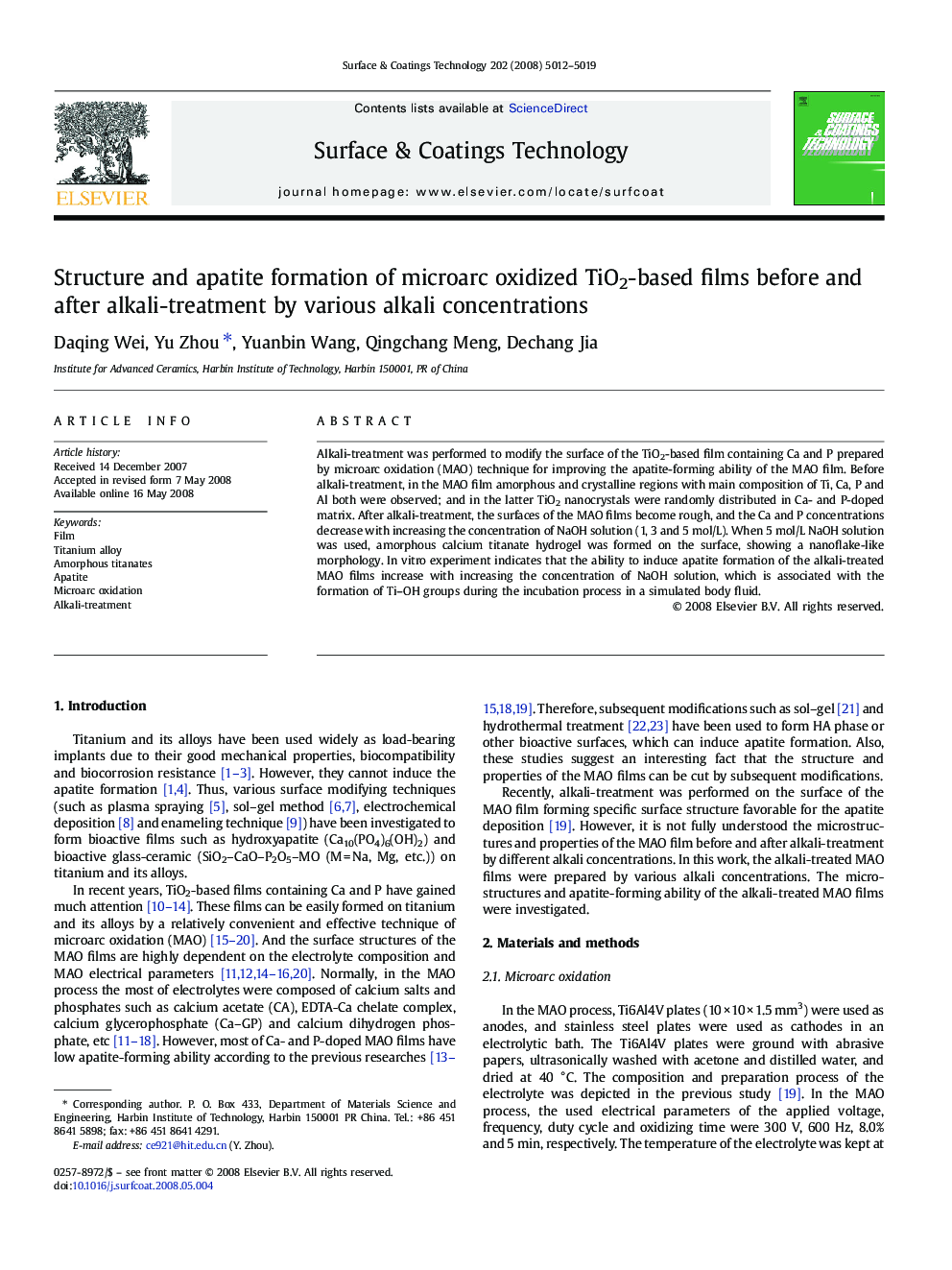| Article ID | Journal | Published Year | Pages | File Type |
|---|---|---|---|---|
| 1660300 | Surface and Coatings Technology | 2008 | 8 Pages |
Alkali-treatment was performed to modify the surface of the TiO2-based film containing Ca and P prepared by microarc oxidation (MAO) technique for improving the apatite-forming ability of the MAO film. Before alkali-treatment, in the MAO film amorphous and crystalline regions with main composition of Ti, Ca, P and Al both were observed; and in the latter TiO2 nanocrystals were randomly distributed in Ca- and P-doped matrix. After alkali-treatment, the surfaces of the MAO films become rough, and the Ca and P concentrations decrease with increasing the concentration of NaOH solution (1, 3 and 5 mol/L). When 5 mol/L NaOH solution was used, amorphous calcium titanate hydrogel was formed on the surface, showing a nanoflake-like morphology. In vitro experiment indicates that the ability to induce apatite formation of the alkali-treated MAO films increase with increasing the concentration of NaOH solution, which is associated with the formation of Ti–OH groups during the incubation process in a simulated body fluid.
